Teaching Poor Kids Where They Live
Learning centers in subsidized housing target low-income and black achievement gaps.
Centers can link school, home
Some leaders acknowledge that strong communication between learning centers and school districts can improve students’ achievement levels. And, they say, too often this tie is weak.
“The reason kids don’t perform in schools … (is because the learning center is) just not in relationship with these teachers, we’re not in relationship with this school and that’s what gets in the way,” Packer program director Jacki Thomas said.
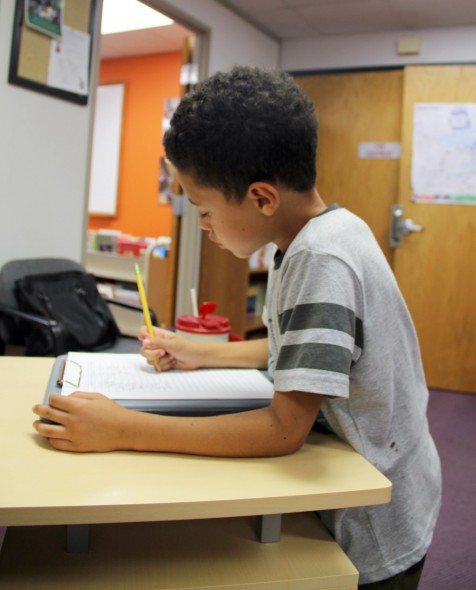
Third-grader Damare McCollum signs in to use a computer after school at the Packer Townhouses community learning center in Madison. Photo by Abigail Becker of the Wisconsin Center for Investigative Journalism.
Nichelle Nichols, director of family, youth and community engagement for the Madison district, agreed there is often a “disconnect” between neighborhood centers and districts because such programming takes place outside of schools.
Nichols meets quarterly with neighborhood center directors to strengthen the relationship between the district and the learning centers. Laura Whitmore, the district’s community partnerships coordinator, also has created guidelines for tutoring to ensure the community programs mesh with the school curriculum.
“We absolutely can leverage those relationships so the students and families are getting the benefits of better collaboration,” Nichols said.
For her part, Northport program director Pat Wongkit keeps a roster of schools and teachers so she can contact them, for example, if a student fails to bring in homework. She said school officials also sometimes call her when students show up late for school.
Karen Herrera, an eighth-grade English teacher at Black Hawk Middle School in Madison, said students who attend the learning centers have better study and organizational skills and “seem to mature a little bit faster.”
“They’re more about school by the time they get to eighth grade or high school,” said Herrera, whose school’s attendance area includes community centers in the Northport, Packer, Kennedy Heights and Vera Court neighborhoods.
Josie Looper, an eighth-grader at Black Hawk, lives in Kennedy Heights and attended the learning center regularly when she was younger. Now she works there, helping elementary students with their homework.
She said Jaimie Schlicher, a middle school program coordinator at the community center, cares about her.
“She’s like another big sister, and we have the same birthday,” Looper said. “I’ve known her since I was in fifth grade, so she knows me and my family really well.”
Stability allows people such as Martinus Roper to form crucial bonds with struggling students. Roper is the assistant program director at Milwaukee’s Greentree-Teutonia community center who is especially passionate about engaging high school students. Roper, called “Mr. M” by the students, recently earned an associate degree in business management through ##Cardinal Stritch University## classes at the learning center.
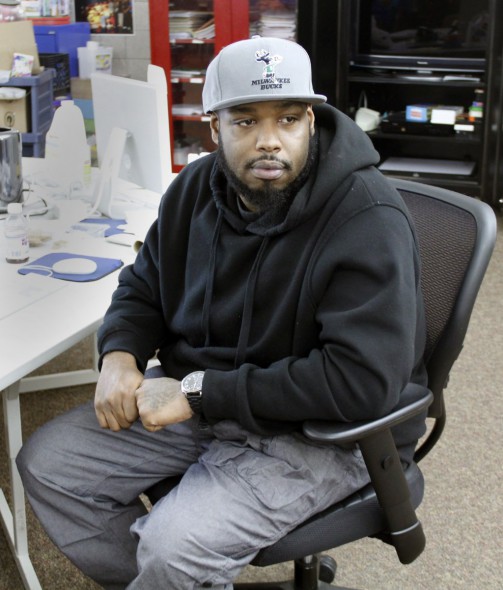
Martinus Roper, who goes by “Mr. M,” is an assistant program coordinator at the Greentree-Teutonia learning center. Because of his own experience growing up without a father present, he said he understands the importance of having a consistent adult presence in a child’s life. Photo by Abigail Becker of the Wisconsin Center for Investigative Journalism.
Roper, who grew up in the Greentree-Teutonia complex, said he can identify with many of the students. He grew up without a father and understands the importance of having a consistent adult presence in a child’s life.
“I kind of take that role of a dad, big brother, uncle, whatever you need me to be in that moment, because I know how much that means, especially going through that as a child,” Roper said.
Packer program director Jacki Thomas has seen generations of students grow up on the property and in the learning center. Her involvement at the center allows her to form important bonds that help students succeed.
“People need to feel known,” Thomas said. “No gaps in education are ever going to change without relationship.”
Eileen Guzman agreed. She said the Packer community center became a “pseudo-parent” to her son, Ien, who spent many hours in and around the center, safe under the watchful eyes of neighbors.
Guzman said she can see a direct relationship between the learning center and success.
If the learning center was not available, Guzman said, “we would have lost a lot of kids.”
The nonprofit Wisconsin Center for Investigative Journalism (www.WisconsinWatch.org) collaborates with Wisconsin Public Radio, Wisconsin Public Television, other news media and the UW-Madison School of Journalism and Mass Communication. All works created, published, posted or disseminated by the Center do not necessarily reflect the views or opinions of UW-Madison or any of its affiliates.
Children Left Behind
-
Study Shows Poverty’s Impact on Kids
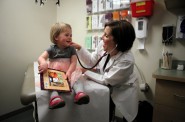 Jul 9th, 2016 by Abigail Becker
Jul 9th, 2016 by Abigail Becker
-
Wisconsin Going Backwards on Achievement Gap
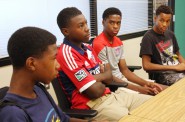 Dec 21st, 2015 by Abigail Becker
Dec 21st, 2015 by Abigail Becker
-
State Has Worst Black-White Learning Gap
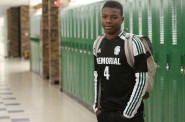 Dec 19th, 2015 by Abigail Becker
Dec 19th, 2015 by Abigail Becker




















Wow, fabulous! This system is achieving real results for our nations children. The Housing Ministries of American Baptist in Wisconsin needs a more visible campaign for fund raising.